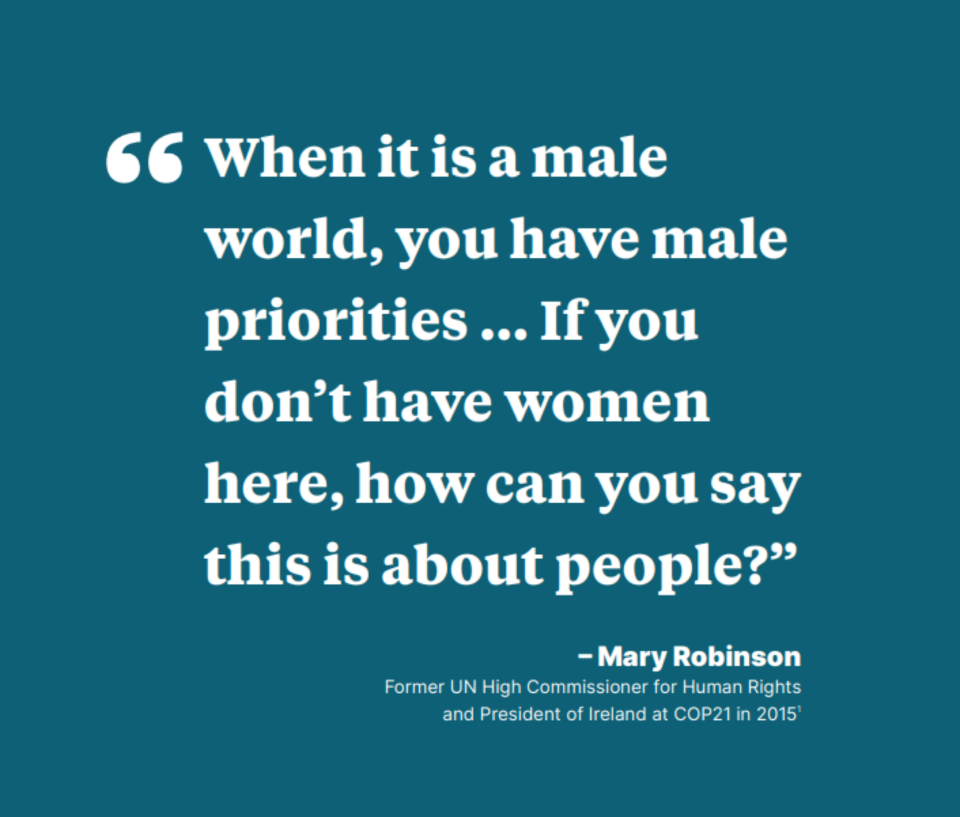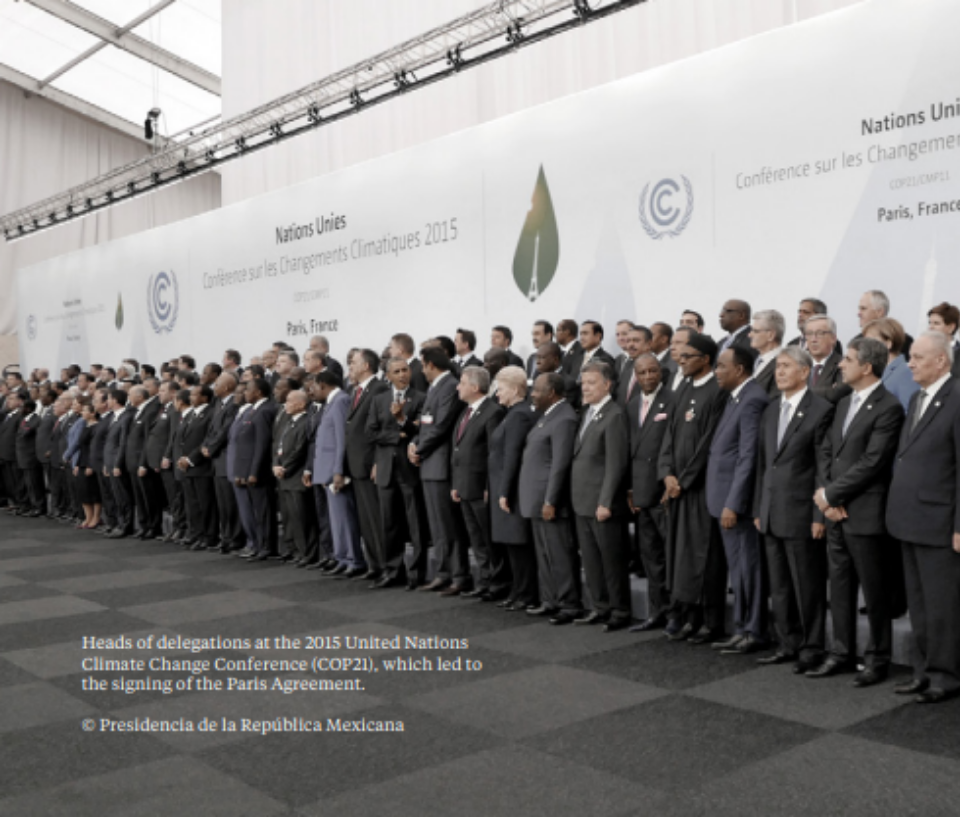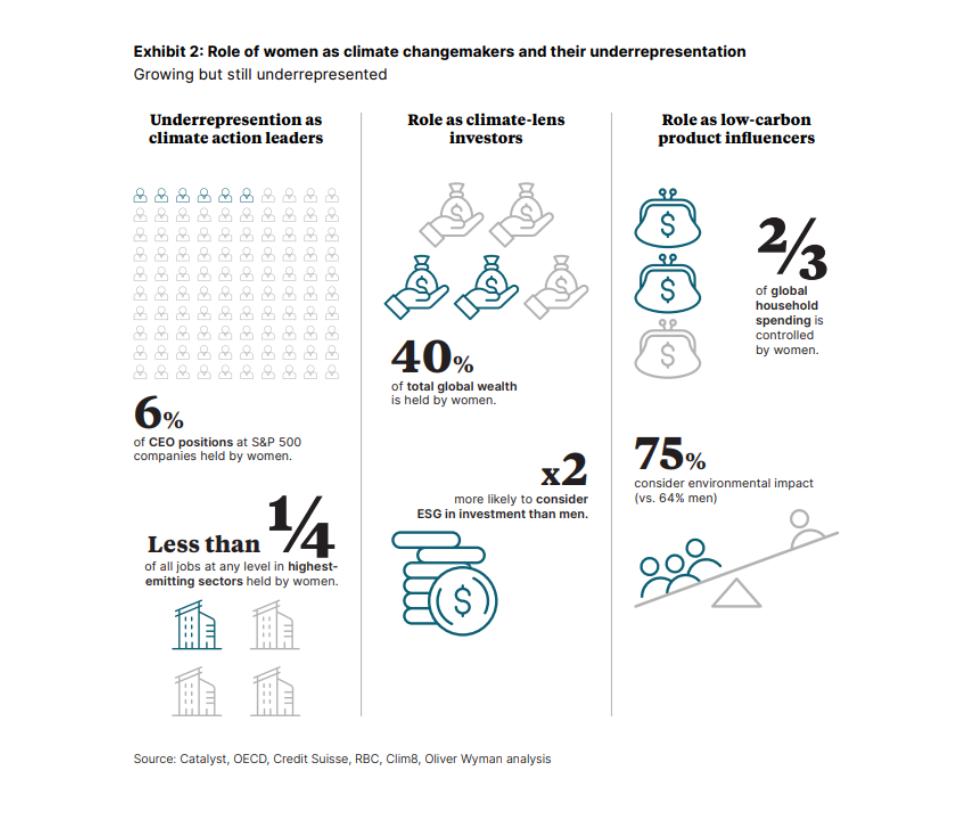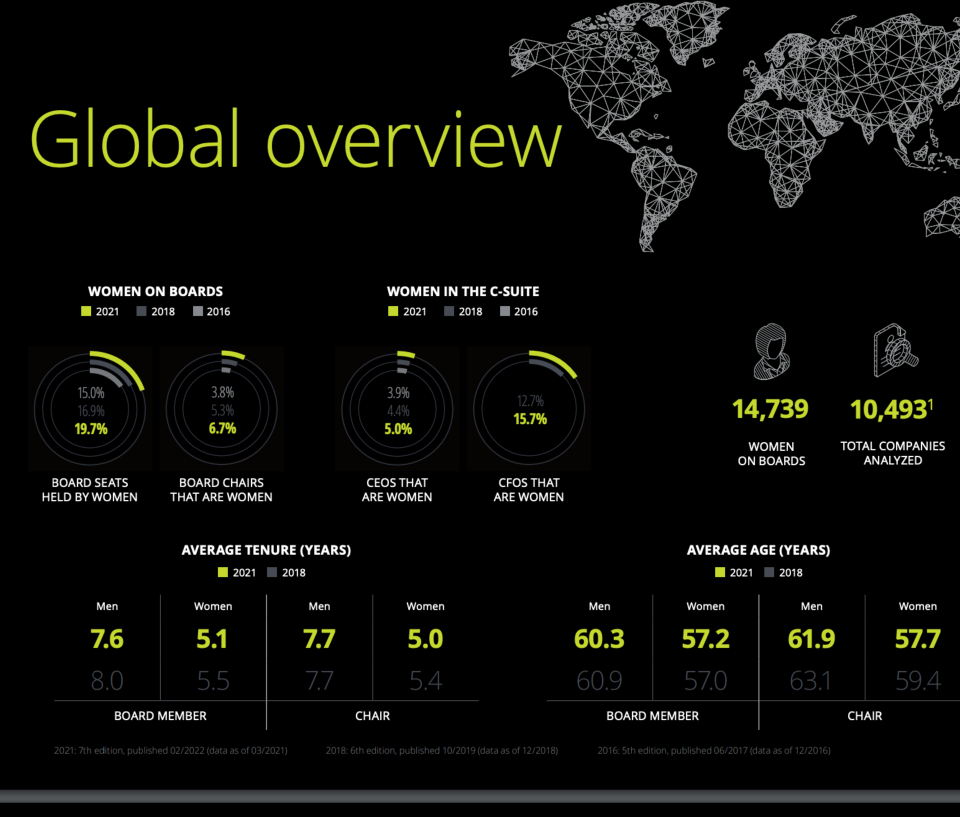
Progress but it's slow
Deloitte, in collaboration with the 30% Club, today released the seventh edition of Women in the Boardroom: A Global Perspective.
It includes updates from 72 countries on representation of women in the boardroom, exploring insights on the political, social, and legislative trends behind these numbers.
It found that nearly all countries have local organisations or governments committed to increasing the number of women serving on company boards.
While these private and public sector efforts demonstrate steps toward achieving parity, the pace of collective progress needs to pick up.
People often ask why the 30% Club is not the 50% Club given that our aim is parity. I think this report answers that question, we are still far from the 30% tipping point in many geographies
Key higlights from the report include:
Globally, only one in five board seats are held by women
A smaller group of women are taking on a large number of board seats – referred to as the ‘Stretch Factor’
Report reveals a disconnect between women holding roles on boards and in the executive.
Globally, only 6.7% of board chairs are women, and even fewer CEOs – 5% – are women
A global average of 19.7% of board seats are held by women, an increase of 2.8% since 2018 compared to a 1.9% increase in the period from 2016 to 2018
Companies with women CEOs have significantly more balanced boards than those with male CEOs: 33.5% vs 19.4%
Only three in 10 board seats held by women in UK behind leaders France, Norway and Italy in boardroom diversity
However, UK enters into top 10 global ranking and could reach boardroom gender parity by 2027.
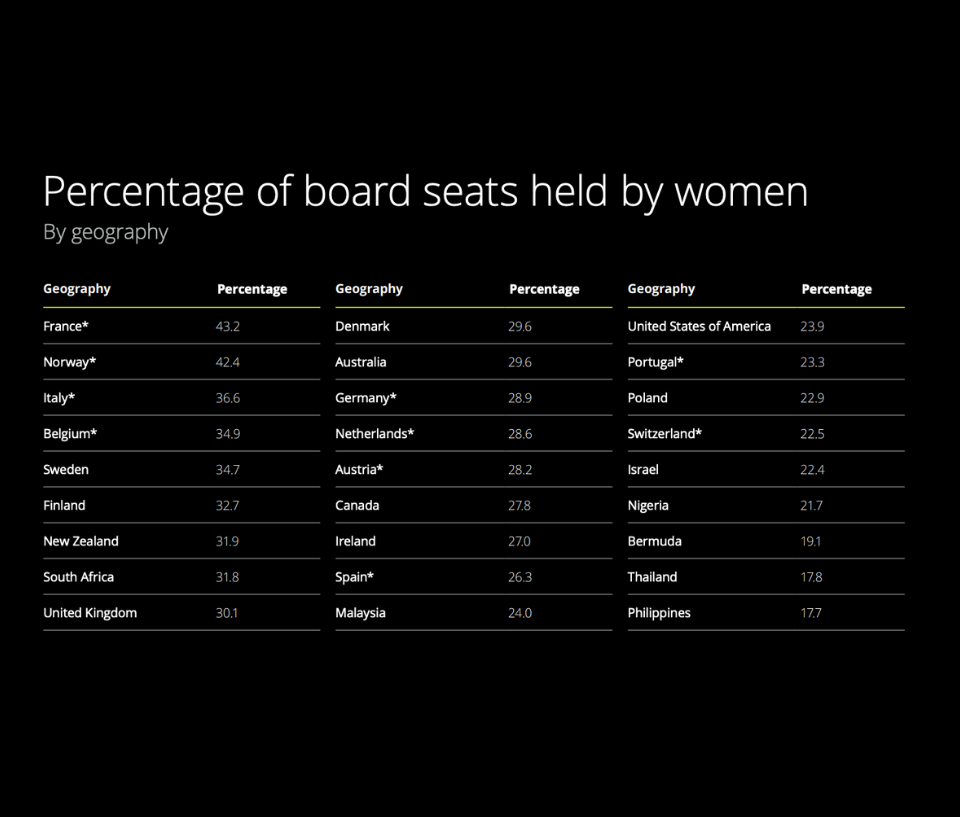
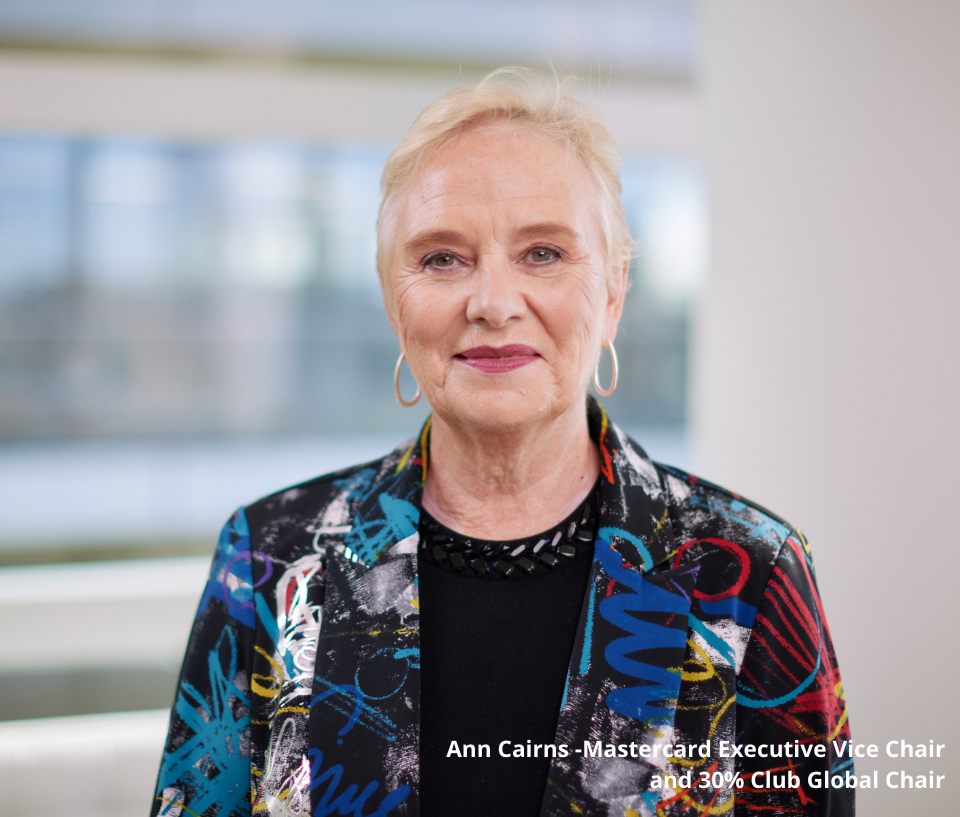
Commenting on the report, which includes commentary from 30% Club chapters, global chair Ann Cairns said: “With the FTSE 100 on the brink of attaining 40% women in board roles, I am encouraged by Deloitte Global’s finding that UK parity could be reached by 2027.
“People often ask why the 30% Club is not the 50% Club given that our aim is parity. I think this report answers that question, we are still far from the 30% tipping point in many geographies.”
She added: “One of the report’s most interesting findings is the real balance that female leaders bring. If women CEOs can have more balanced boards, there’s no reason that male CEOs can’t.
“Finally, on the stretch, this speaks to the fact that women have a harder time being appointed if they don’t have previous board experience. Chairs and CEOs should be encouraged to give women their first board seat.
“There is plenty of talent out there who would make great directors. This is very true for people of colour too, many of whom would welcome the chance to make a significant contribution at the top of the corporate world but remain significantly under-represented.”
Sharon Thorne, Deloitte Global Board Chair and member of the 30% Club, said: “While it’s heartening to see that the world continues to make progress towards achieving gender parity, with the exception of a few countries, overall progress remains slow and uneven.
“The pandemic has further challenged progress in achieving equality, making it even more important to move past discussion and take concrete actions to ensure inclusion within and beyond the boardroom including gender, ethnic and racial diversity among other characteristics.”
She adds: “Increasing the number of women on boards is only the first step on a larger journey.”
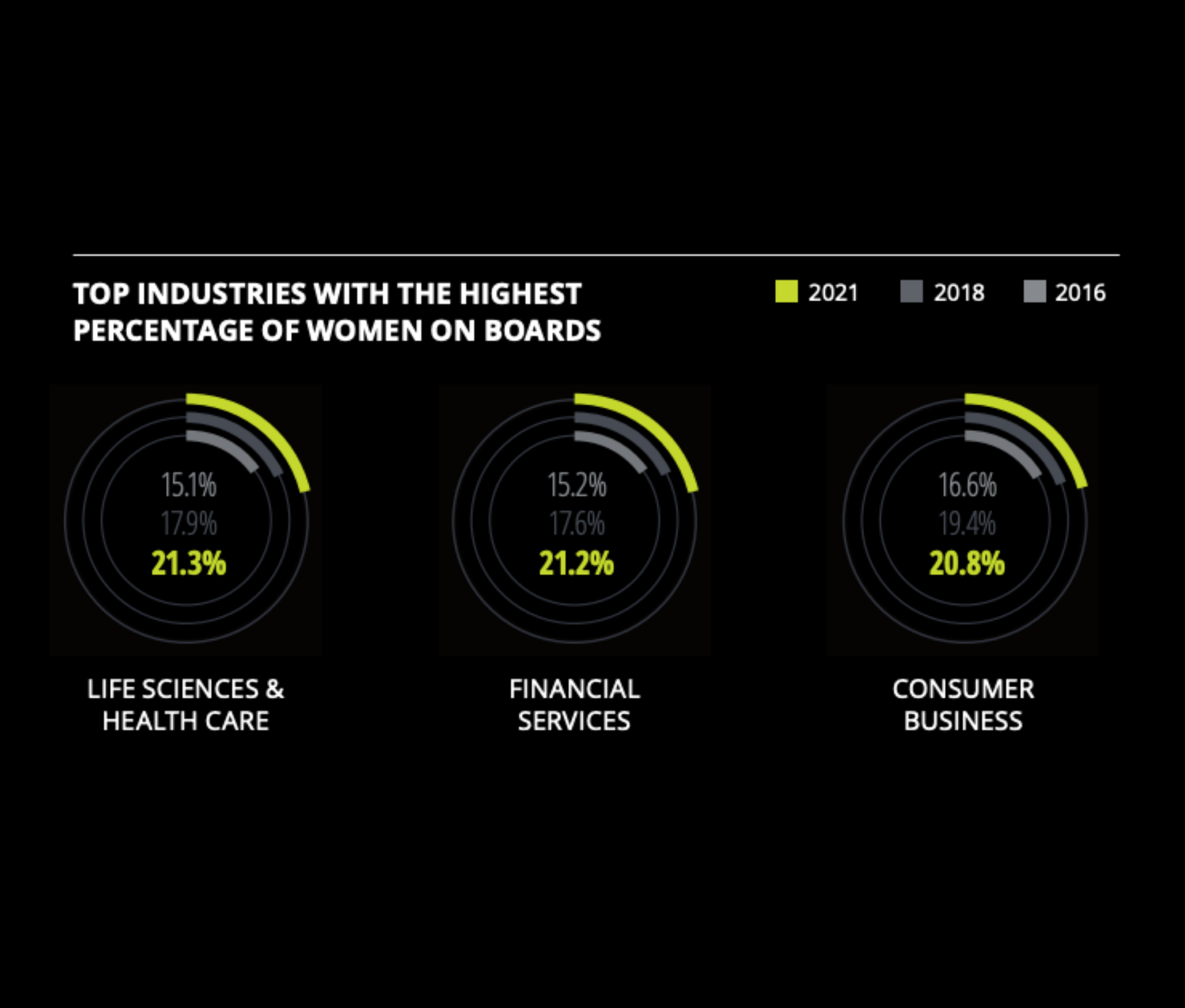
Where we are
The 30% Club has come a long way from when it was set up in the UK in 2010.We now span six continents and more than 20 countries. We’re actively expanding into more G20 countries



